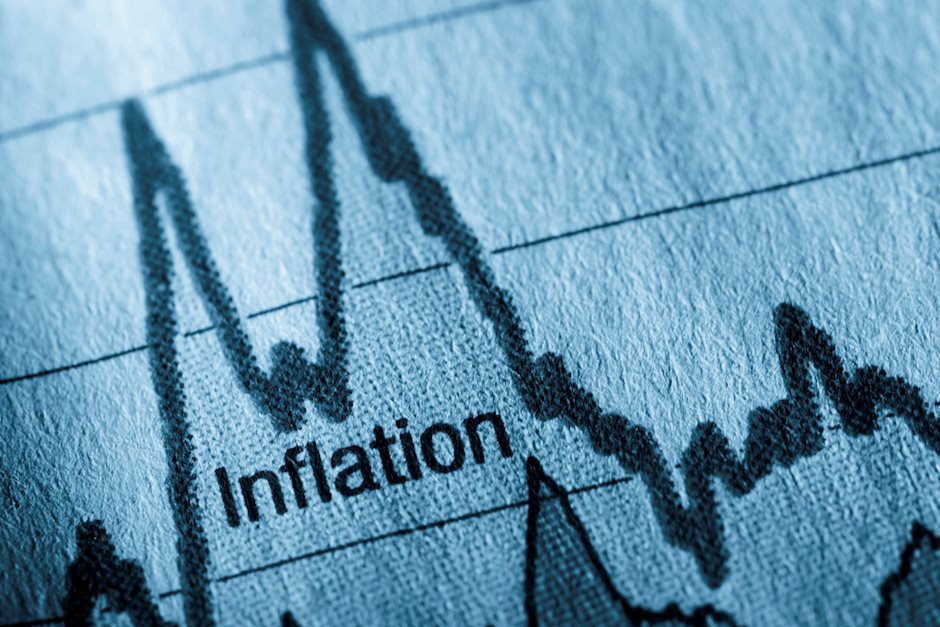The evolving battle against inflation

I have little doubt that, in time, inflation will abate, but it won’t happen because of any fiscal policy actions — fiscal policy being the realm of government spending and taxation. The traditional anti-inflationary fiscal policy calls for lowering aggregate demand by reducing government spending, raising taxes, or both. Of course, some anti-inflationary fiscal hawks may favor sharply reduced government spending, but the political will for that end isn’t sufficient; and that’s not likely to change even after the mid-term elections. On the other side of the ledger, some Democrats are calling for additional tax increases on corporations and high net worth households; but with the filibuster in place, the chances for this plan being implemented are equally low.
A non-traditional approach would seek to stimulate aggregate supply, for example by providing incentives to allow greater participation in the labor force or by improving efficiencies by authorizing additional spending on infrastructure. The infrastructure spending bill passed last year sought to do just that, overriding those who, rightly or wrongly, categorized any incremental government spending as inflationary; but, again, given the opposition, the prospect of any additional infrastructure spending beyond that which was authorized last year is nil. Thus, this supply-side policy orientation is also at a dead-end. It appears, then, that the direction of Federal fiscal policy is essentially baked in, with little prospect of any material change regardless of the makeup of the next Congress.
Given these considerations, it’s disturbing to me to see the character of the discourse about inflation that we’re seeing in this election season. Aside from complaining about the current pace of inflation, Republicans aren’t ready to do much, if anything, to rein it in. They’re playing a cynical game of blaming the current leadership, without having anything in the way of a game plan to address the problem. If they have any particular programs in mind — either to cut or add — now’s the time to offer them up. The Democrats don’t appear to have any magic bullets either, but at least they’re not highlighting the problem without proposing any solutions, as the Republicans are.
Both parties are effectively leaving it entirely to the Fed to solve this problem, and as I suggested in my opening sentence, I expect the Fed will rise to the challenge. It’ll take some time, but ultimately, the Fed is committed to doing what it takes to bring inflation under control. Doing so means relying on ever tightening monetary policy to choke off consumer and investment demand. Make no mistake, you can expect the Fed to continue raising interest rates higher and higher for as long as inflation remains at unacceptably high rates, for however long it takes. This policy, unfortunately, comes at a cost.
One of the first sectors to feel the effect of tight money is the housing sector. Already, the Fed’s rate hikes have passed through to mortgage markets, sharply raising the cost of home ownership for new buyers. Interest rates for traditional 30-year fixed rate mortgages have more than doubled since early 2021. They were below 3 percent then; today they’re over 6 percent. All else equal, this increase translates into mortgage payments more than 40 percent higher today than they were last year.
An increasing number of prospective buyers who may have had some chance of buying a house last year may no longer be able to afford one, and some sellers will likely have to accept a lower price for their homes than they might have been able to realize, earlier. Either or both of these effects will foster a reduced pace of home sales, and with that, lower economic activity with fewer renovations occurring and a diminished demand for new home appliances and furnishings.
The housing sector is especially credit sensitive, but as participants in housing-related companies respond to their changing financial standing, the broader economy will feel this constriction, as well. As long as the Fed keeps hiking interest rates, a slowdown of the economy at large will become more pervasive, with those who lose their jobs and salaries ending up paying a much higher price to combat inflation than virtually everyone else.
These disproportional outcomes as to who bears the cost of anti-inflationary policies deserve to be part of the pre-election conversation, with some attention given to the question of whether additional safety net provisions should be enacted for those who lose their jobs and income or otherwise fall at the bottom of the economic ladder; but many such programs — particularly those relating to unemployment insurance — fall within the purview of state governments.
Features of unemployment insurance and other safety net programs vary considerably from state to state;* and given that structure, it seems appropriate for candidates seeking state offices — particularly those who choose to put inflation front and center in their messaging to prospective voters — to share their perspectives on whether prevailing safety net provisions in their states are adequate or deficient. Merely complaining about the high level of inflation is hardly constructive.
The jury is still out as to if, when, and where, any such safety net adjustments may be necessary, but the time to be thinking about these issues is now, before any full-blown recession develops, in the hopes that such an outcome can be avoided, or its consequences mitigated.
Author
_XtraSmall.jpg)
Ira Kawaller
Derivatives Litigation Services, LLC
Ira Kawaller is the principal and founder of Derivatives Litigation Services.

















